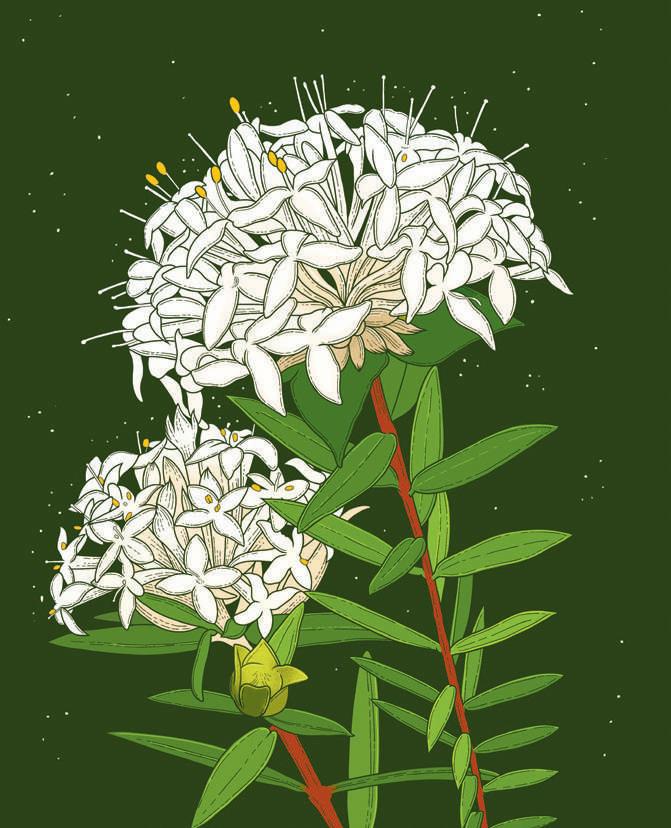
1 minute read
Snow Buttercup
~ Ranunculus anemoneus ~
RANUNCULACEAE
Advertisement
For Dorothy – lover of anemones
Snow Buttercups are found in the cold alpine regions of New South Wales. Their little pink buds peer through the melting snow each summer, taking in a vista of the gorgeous plateaus and snow-capped slopes of Mount Kosciuszko. These plants can survive persistent snow, frost, high winds and steep slopes and remind us of the extreme conditions our native flora can endure. Yet, due to the thumping hooves of wild horses, this Buttercup is listed as an endangered species. Brumbies were introduced at the time of colonisation and now run wild, creating extensive damage to sensitive alpine ecosystems. There are humane brumby-rehoming programs that we can support to reduce the numbers in the wild. These programs could help save our native floral friends so that their darling buds can peer through the snow for many seasons to come.
WHERE TO LOOK
You can find communities of Snow Buttercups in a narrow band, only about 8km wide and 32km long, along the Great Dividing Range in Kosciuszko National Park. They’ll be seen through steep, rocky alpine herb fields and subalpine woodlands and are often perched beside patches of snow.
FEATURES
Pink buds form into daisy-like white blooms that hold 15 to 35 overlapping petals and many yellow stamens. These flower heads sit proudly on a stem 30cm long, with the whole shrub reaching up to 60cm tall. Their leathery leaves are stalkless, 2.5–11cm long and up to 13cm wide at the base of the plant.
FLOWERING SEASON
Spring and summer → After the snow melts, these perennial blooms start to pop their buds out and will flower throughout summer.
PLANTING
Snow Buttercups are rare but may be available in cool-climate nurseries that specialise in native species. They are ideal for partial sun conditions in shady spots with well-drained soil and will tolerate heavy frost.










